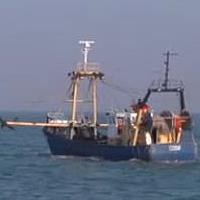(BRUSSELS) – The EU Council and European Parliament provisionally agreed Tuesday on measures to support fishermen affected by difficult stocks situations in the Baltic Sea including scrapping vessels.
The agreement would allow fishermen and -women affected by the dire condition of certain fish stocks in the Baltic Sea to leave the fishing sector with the financial support from the European Maritime and Fisheries Fund (EMFF), received under specific conditions.
The agreement concerns specifically vessel owners in affected Member States wishing to permanently decommission their vessels that used to target eastern cod or that are active in the western cod and herring fishery.
The deal was welcomed by Fisheries Commissioner Virginijus Sinkevicius, who said it was important that “we could reach an agreement that offers relief to our fishermen and -women who are coping with the dual challenge of the steep reduction of fishing opportunities in the Baltic and the aftermath of the coronavirus crisis. He added that the deal would foster “a healthier, more sustainable Baltic of tomorrow by ensuring the survival of fish stocks, while at the same time supporting the livelihoods of those whom the fish stock crisis in the Baltic Sea has hit the most.”
The difficult situation of the two Baltic cod fisheries and the western Baltic herring fishery has resulted in substantial reductions of fishing opportunities and the full closure of targeted eastern Baltic cod fishery since July 2019.
Following scientific advice, the Commission proposed further reductions of fishing opportunities for 2021. The new agreement will address the potentially severe economic impact of these necessary measures on the fishing communities and fleets traditionally targeting the endangered stocks. It will also address the fishing pressure on the stocks in the Baltic Sea by reducing fishing capacity. Discussions on how the EU will strengthen fisheries control and ensure enforcement of the rules will continue in upcoming negotiations on the Fisheries Control Regulation.
The European Parliament and the Council both need to confirm this agreement in the coming weeks.



